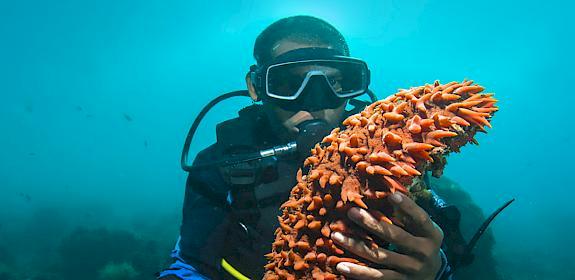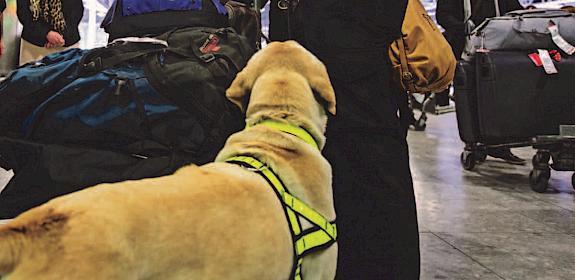Critical issues for CITES on the table
Geneva, Switzerland, 11th January 2016—This week a number of issues fundamental to the success of the Convention on International Trade in Endangered Species of Wild Fauna and Flora (CITES) as a conservation tool will be under discussion.
During the Convention’s regular Standing Committee, measures to be discussed include proposals to ensure that trade in captive bred-species—such as reptiles for the skin and pet trade—is not used to launder these species from the wild.
TRAFFIC has highlighted a number of cases where wild-sourced animals have been fraudulently declared as captive-bred in order to make their international trade appear legal, including fraudulent trade in Tokay Geckos, Earless Monitor Lizards, pythons and birds.
Traceability will also be a key issue discussed at the Standing Committee. The meeting will be examining systems that will be able to track wildlife products—such as shark products—to ensure relevant national and international legislation is being adhered to throughout the trade chain and in a transparent manner, for example to prevent the mixing of products sourced from sustainable and unsustainable sources. TRAFFIC recently completed an analysis of this issue, which will help inform these deliberations.
Another vital issue are proposals for a review of the CITES National Legislation Project—the process to ensure that the legislation of a particular country effectively implements the provisions of CITES nationally. With key gaps and weaknesses already exposed in the national legislation of many countries, TRAFFIC will be supporting efforts to create a more robust system to ensure that the CITES legislation in all countries is fit for purpose and does not allow legal loopholes to provide cover for illegal and unsustainable wildlife trade to flourish.
The rampant on-going poaching and illegal trade in large mammal products will be the focus of a number of agenda items during the meeting.
With regard to elephants, TRAFFIC would like to see further progress being made by several countries in the implementation of their CITES National Ivory Action Plans. This process has been absolutely crucial in ensuring that the countries involved are taking quite specific, measurable and time-bound actions to tackle critical gaps and weaknesses in their efforts to curtail illegal ivory trade.
Although some countries, and Thailand in particular, have made commendable progress, it is clear the process is being hampered through a lack of resources—both financial and technical—as a significant barrier to effective implementation of these plans and we hope that the international community responds to this need at the meeting.
One significant development from the last CITES Conference of the Parties (CoP16) was the increased attention being paid to the issue of reducing demand for illegal wildlife products through changing consumer behaviour in destination markets. In particular, a CITES Decision was adopted calling for the development and implementation of effective demand reduction strategies by consumer States to curtail demand for rhino horn. TRAFFIC urges countries to ensure this critical issue, which has the potential to have a significant impact on a number of species not just rhinos, remains at the forefront and proposals during the Standing Committee meeting.



